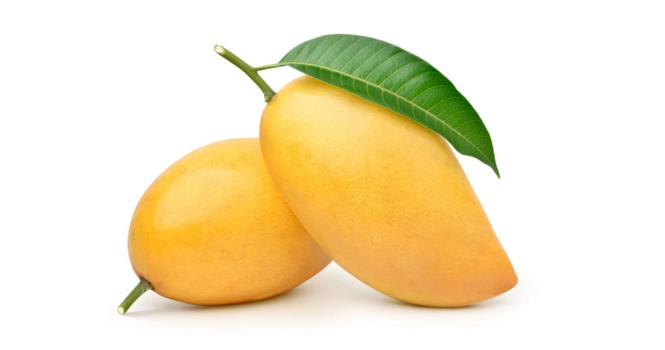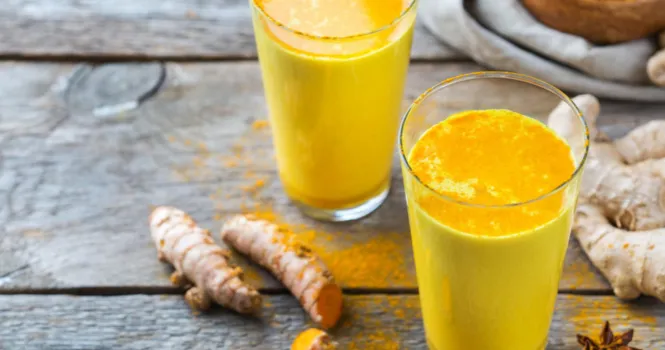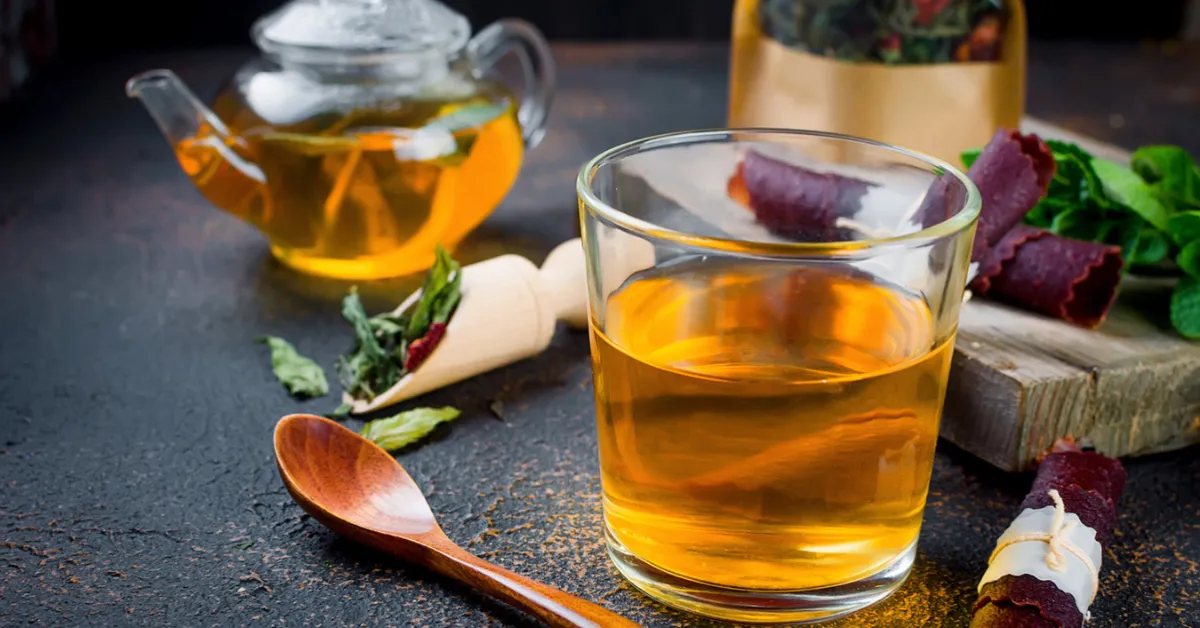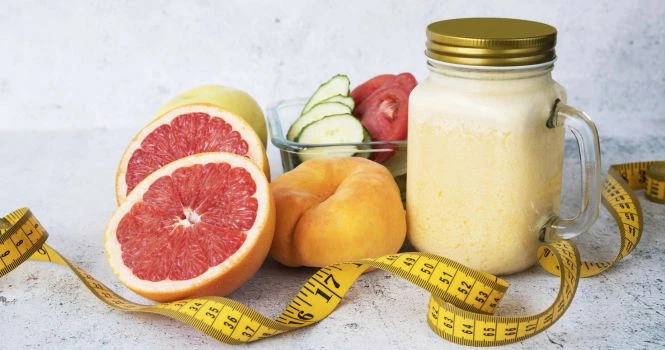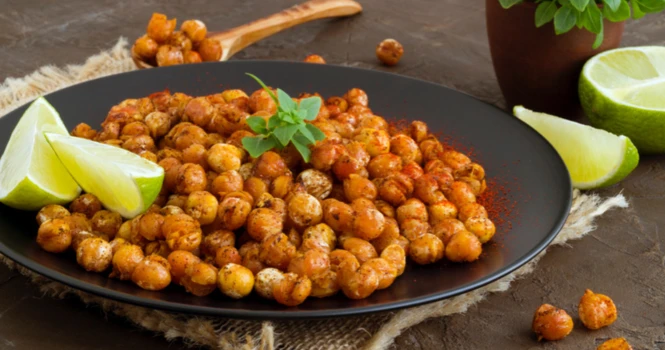Understanding the Calories in Biscuits: A Comprehensive Guide
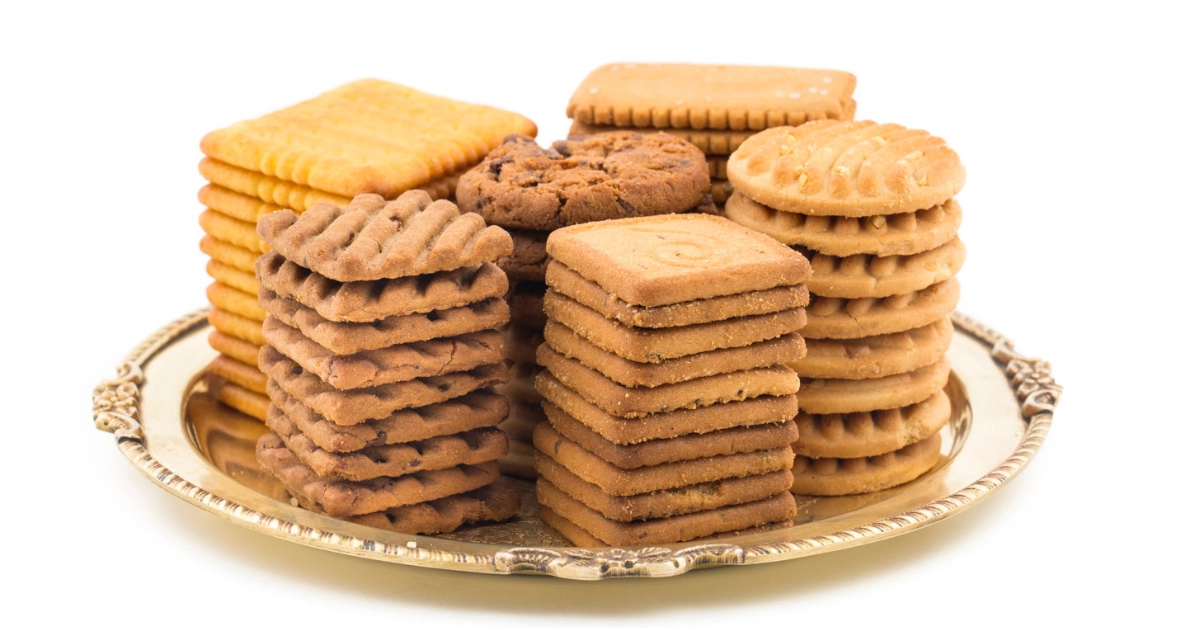
When it comes to enjoying a quick snack or complementing a cup of tea or coffee, biscuits are a popular choice for many.
But have you ever paused to consider the “Calories in Biscuits”?
Understanding the caloric content of these delightful treats can be a crucial aspect of maintaining a balanced diet, especially for those keeping an eye on their calorie intake.
Biscuits, with their vast range of flavors, sizes, and ingredients, offer a spectrum of calorie counts.
Before going into the calories in Biscuits, Let’s understand what ingredients go into them to make them delicious.
Biscuits, in their simplest form, are a harmonious blend of key ingredients that come together to create the crispy, crumbly textures and delightful flavors we all enjoy. At the heart of most biscuit recipes are:
Flour: The backbone of biscuits, flour provides structure. Depending on the type of biscuit, this could range from refined all-purpose flour or Maida, which lends a light texture, to whole wheat flour, which offers a denser, fiber-rich option.
Fats: Butter, margarine, or oils are commonly used in biscuit recipes. They contribute to the tender, flaky texture of biscuits and are a major factor in their mouthfeel and flavor. The type and amount of fat used can significantly influence the calorie content of the biscuits.
Sugar: Adding sweetness and contributing to the golden-brown color upon baking, sugar is a key ingredient. It can vary from white and brown sugars to healthier alternatives like honey or maple syrup, each affecting the caloric value and taste profile differently.
Leavening agents: Ingredients like baking powder or baking soda are often used to help the biscuits rise and become light and airy. The choice and quantity of leavening agent can affect the texture and appearance of the biscuits.
Liquids: Milk, water, or eggs can be added to biscuit dough to help bind the ingredients together and achieve the desired consistency. They also play a role in the overall nutritional content of the biscuits.
Flavorings and Additives: From vanilla extract to cinnamon, salt, or dried fruits and nuts, various flavorings and additives are incorporated to enhance the taste and appearance of biscuits.
These ingredients not only contribute to the sensory experience but also affect the nutritional profile, including the calorie count.
Common biscuit brands available
Parle: Known for its iconic Parle-G glucose biscuits, Parle offers a vast range of other favorites like Hide & Seek (chocolate chip cookies) and Monaco (salted crackers).
Britannia: A household name, Britannia is famous for its Good Day butter cookies, 50-50 sweet and salty biscuits, and NutriChoice digestive biscuits.
Sunfeast: Owned by ITC, Sunfeast provides a diverse portfolio including Dark Fantasy Choco Fills, Marie Light, and Sunfeast Bounce cream biscuits.
Nabisco: This brand is a powerhouse with popular offerings like Oreo (America’s favorite cookie), Chips Ahoy! (chocolate chip cookies), and Nutter Butter (peanut butter cookies).
Pepperidge Farm: Known for its distinctive cookies, including the Milano (chocolate-filled cookies), Chessmen (butter cookies), and Farmhouse (hearty and rustic cookies).
Keebler: Famous for its Elves and a variety of cookies like Fudge Stripes, Sandies (shortbread cookies), and Chips Deluxe (chocolate chip cookies).
Common Biscuits and Calories
| Biscuit Brand | Serving Size (approx.) | Calories (approx.) |
| Parle G Biscuits | 2 biscuits (12.5g) | 56 |
| Good Day Biscuits | 2 biscuits (24g) | 120 |
| Marie Gold Biscuits | 3 biscuits (18g) | 75 |
| Jim Jam Biscuits | 1 biscuit (17g) | 80 |
| Nutrichoice Biscuits | 2 biscuits (16.6g) | 70 |
| Threptin Biscuits | 1 diskette (10g) | 43 |
| Hide and Seek Biscuits | 3 biscuits (25g) | 120 |
| Monaco Biscuits | 4 biscuits (20g) | 106 |
| Digestive Biscuits | 2 biscuits (30g) | 140 |
| Dark Fantasy | 1 biscuit (18g) | 90 |
| KrackJack Biscuits | 4 biscuits (24g) | 112 |
| Britannia 50-50 | 3 biscuits (18g) | 90 |
Different Biscuit Brands with Calories in each
| Biscuit Type | Calories (approx.) |
| 1 Biscuit (general average) | 20-50 |
| 2 Biscuits | 40-100 |
| 3 Biscuits | 60-150 |
| 4 Biscuits | 80-200 |
| 5 Biscuits | 100-250 |
| 6 Biscuits | 120-300 |
| 10 Biscuits | 200-500 |
| 1 Biscuit Packet | Varies widely |
| Biscuits in Good Day | 120-140 for 2 |
| Biscuits in Oreo | 53 per biscuit |
| Biscuits in Bourbon | 70 per biscuit |
| Nutrichoice Biscuits | 35 per biscuit |
| Digestive Biscuits | 70 per biscuit |
| Butter Biscuits | 45 per biscuit |
| Osmania Biscuit | 30 per biscuit |
| Arrowroot Biscuits | 30 per biscuit |
| Bakery Biscuits | 50-80 per biscuit |
| Cream Biscuit | 60-90 per biscuit |
| Salt Biscuits | 10-30 per biscuit |
| Monaco Biscuits | 26 per biscuit |
| Marie Biscuits (4) | 76 for 4 |
| 5050 Biscuit | 30 per biscuit |
| Rusk Biscuit | 40-80 per piece |
| Glucose Biscuits | 30 per biscuit |
| Chocolate Biscuits | 50-80 per biscuit |
| Crackers Biscuit | 15-30 per biscuit |
| Nice Biscuits | 40 per biscuit |
| Oatmeal Biscuits | 50-70 per biscuit |
| McVities Biscuits | 45 per biscuit |
| Karachi Biscuits | 80-100 per biscuit |
| Wafer Biscuits | 100-120 per packet |
| Wheat Biscuits | 30-50 per biscuit |
| Tiger Krunch Biscuit (40g) | 180-200 for pack |
| Bournvita Biscuit | 30 per biscuit |
| Parle G (one biscuit) | 14 per biscuit |
| Salted Biscuits (1) | 10-30 per biscuit |
| 2020 Biscuit | 30 per biscuit |
| Nutrichoice (2 biscuits) | 70 for 2 |
| Digestive (2 biscuits) | 140 for 2 |
| Marie (3 biscuits) | 57 for 3 |
| Oreo (3 biscuits) | 159 for 3 |
| Digestive (3 biscuits) | 210 for 3 |
| Oreo (4 biscuits) | 212 for 4 |
| Marie (5 biscuits) | 95 for 5 |
| Marie (6 biscuits) | 114 for 6 |
| Cheese Biscuits | 70-90 per biscuit |
| Homemade Biscuits | 80-150 per biscuit |
| Horlicks Biscuit | 30 per biscuit |
| Lotus Biscuits (2) | 73 for 2 |
| Malkist Biscuit | 60-80 per biscuit |
| Peanut Biscuit | 40-60 per biscuit |
| Ritz Biscuits | 16 per biscuit |
| Shortbread Biscuits | 40-80 per biscuit |
| Water Biscuits | 10-30 per biscuit |
| Weetabix Biscuit | 70-90 per biscuit |
Frequently Asked Questions
How Many Calories Are in 1 Biscuit?
The calorie content in 1 biscuit can vary widely based on the type and ingredients used. On average, a single biscuit can contain between 20 to 80 calories. For example, a plain digestive biscuit might have around 70 calories, while a simple butter biscuit could contain about 40 calories.
How Many Calories Are in 2 Biscuits?
When consuming 2 biscuits, you can generally expect to double the calorie intake of one biscuit, ranging from 40 to 160 calories in total. This will depend on the specific type of biscuit; for instance, 2 digestive biscuits may offer around 140 calories, whereas 2 butter biscuits could be closer to 80 calories.
Can I Eat Biscuits During Weight Loss?
Yes, you can eat biscuits during weight loss, but moderation is key. Opting for biscuits with lower sugar and fat content and keeping an eye on portion sizes can help manage calorie intake. Incorporating biscuits as part of a balanced diet while maintaining an overall caloric deficit is essential for weight loss.
How Many Calories Does the Average Biscuit Have?
The average biscuit contains about 50 calories, though this number can range from 20 to 80 calories depending on the biscuit’s size, ingredients, and recipe. Nutritional content can vary significantly among different types of biscuits, from simple tea biscuits to more indulgent varieties like chocolate or cream-filled options.
Are Biscuits Good for Weight Loss?
Biscuits can be included in a weight loss diet, but their suitability largely depends on their ingredients, portion sizes, and how they fit into your overall daily calorie intake.
Generally, biscuits are high in sugars and fats, which might not make them the best choice for weight loss. Opting for whole grain, low-sugar biscuits in moderation, alongside a balanced diet and regular physical activity, can help in managing weight.
Are Biscuits Good for Diabetes?
For individuals with diabetes, it’s crucial to monitor carbohydrate and sugar intake. Most biscuits, especially those high in refined sugars and flours, can cause spikes in blood sugar levels and are not recommended. Diabetics should opt for biscuits with low glycemic indices, made from whole grains and minimal added sugars, and consume them sparingly as part of a controlled diet.
Are Biscuits Good for Blood Pressure?
Biscuits, particularly those high in sodium and trans fats, can be detrimental to blood pressure management. Consuming such biscuits might contribute to hypertension in susceptible individuals. If you have high blood pressure, it’s better to choose low-sodium, whole grain biscuits and consume them in moderation, focusing on a diet rich in fruits, vegetables, and whole grains.
Are Biscuits Good for PCOS?
For managing Polycystic Ovary Syndrome (PCOS), a diet low in refined carbohydrates and sugars is often recommended to help regulate insulin levels and manage symptoms.
Most commercially available biscuits, which are high in sugars and refined flours, may not be beneficial for PCOS management. Choosing biscuits made from whole grains with minimal added sugars, if at all, can be a better option when consumed in moderation as part of a balanced diet.
Are biscuits good for the thyroid?
For thyroid health, it’s important to have a balanced diet rich in nutrients. Biscuits, particularly those made from refined flours and high in sugar, do not offer significant nutritional benefits and can contribute to weight gain, which may affect thyroid function. Selecting nutrient-dense foods over processed biscuits is generally better for thyroid health.
Are biscuits good for immunity?
Biscuits are not typically known to boost immunity. Foods that enhance immune function are usually rich in vitamins, minerals, and antioxidants, such as fruits, vegetables, nuts, seeds, and lean proteins. While occasional biscuit consumption is acceptable, relying on them for immune health benefits is not advisable.
Are biscuits good for muscle gain?
Biscuits are not considered ideal for muscle gain due to their generally low protein content and high levels of refined sugars and fats. For muscle building, a diet higher in protein and balanced in carbohydrates and healthy fats, along with strength training, is more effective. Protein-rich snacks are preferable for supporting muscle gain.



